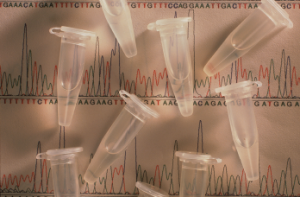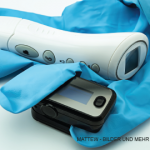
Researchers have identified an alphabet soup of autoinflammatory diseases with genetic underpinnings.
SAN DIEGO—Since the identification of the autoinflammatory disease, familial Mediterranean fever (FMF), researchers have identified an alphabet soup of other autoinflammatory diseases with genetic underpinnings, from PAPA (pyogenic arthritis with pyoderma gangrenosum and acne) to NIAID (NLRP1-associated autoinflammation with arthritis and dyskeratosis) to TRAPS (TNF receptor-associated periodic syndrome).
The torrent of discoveries, brought about largely by increasing access to exome-sequencing technology that has fallen in price faster rate than computer technology, is likely to continue, said Daniel Kastner, MD, PhD, scientific director at the National Human Genome Research Institute in Bethesda, Md. Dr. Kastner led the research culminating in identification of FMF, and he remains a leading figure in the investigation of autoinflammatory diseases.
In a session at the 2017 ACR/ARHP Annual Meeting this past November, although these discoveries appear to be almost entirely lab driven, he emphasized the importance of patient inquiry in the findings as well.
“One of the really exciting things about the last two decades of working on the autoinflammatory diseases has been the fact that patients have posed a lot of the questions regarding the cause of their illness,” Dr. Kastner said. “That has led us, through genetics and genomics, to discover disease genes that underlie their illness.”
In one of the more recent discoveries, researchers identified PFIT (autoinflammatory periodic fever, immunodeficiency and thrombocytopenia), which is caused by a mutation in the actin regulatory gene WDR1. Patients were found to have elevated levels of the proinflammatory cytokine interleukin (IL) 18, a sign this cytokine could play a prominent role in these diseases, much as IL-1beta has long been known to play a key role.1
As researchers discover more of these diseases, they find a complex interplay that involves more than just innate immunity, Dr. Kastner said.
“As we recognize more and more of these diseases, it’s turning out there are diseases with some element of autoinflammation, some element of autoimmunity and some element of immunodeficiency, and a blurring of the boundary between monogenic and complex,” he said.
As researchers discover more of these diseases, they find a complex interplay that involves more than just innate immunity, Dr. Kastner said.
Adult-Onset Still’s Disease Tips
John Cush, MD, professor of rheumatology at Baylor University in Waco, Texas, offered guidance on how to identify and manage adult-onset Still’s disease (AOSD), the leading autoimmune cause of undiagnosed fever of unknown origin. He noted many common AOSD symptoms, including:
- A quotidian fever higher than 102ºF. The temperature spikes daily (sometimes twice a day) and then returns to baseline in the same day;
- A distinctive rash that’s neither red nor purple, but more often a salmon color. The rash is also evanescent, fading and changing from day to day. It’s usually found on the trunk, neck or extremities, but not the palms or the soles of the feet; and
- A sore throat, weight loss, myalgias, hepatic dysfunction and lymphadenopathy.
Less common symptoms include pruritis and urticaria, which appear in up to 40% of AOSD patients, and dermal plaques, facial rash, alopecia, erythema nodosum and Raynaud’s phenomena.



